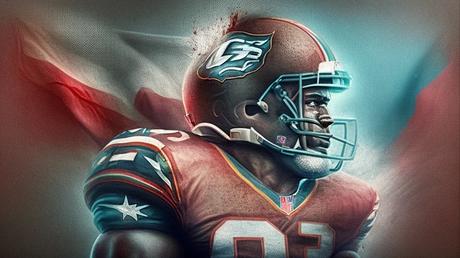
In NFL Rivals, players take on the part of the general manager (GM) of a football team, make plays, and try to beat other teams. Users will be able to play NFL Rivals for free, and they will also be able to use Mythical’s online store to buy, sell, and trade NFL players as NFTs.
Since Mythical has full licensing of its NFL clubs and characters, players can fill their rosters with their favorite players. Each character has its own strengths and weaknesses, as well as a certain amount of rarity. At the moment, an NFT can cost anywhere from $8 for a “common” character to tens of thousands of dollars for a “legendary” one.
Mythical CEO John Linden said at the March Game Developers Conference that NFL Rivals was made for younger people in the Gen Z age group.
Linden said, “What we set up with the NFL is really kind of designed for these younger audiences coming in and embracing these digital assets. The game has a really fast-paced art style and fast-paced gameplay, but really fun and having these principles of Web3 core to the experience.”
During the beta part of NFL Rivals, there were 150,000 players, and $1.6 million worth of NFTs were bought in a single day, according to information that Linden gave to Decrypt last week.
Mythical, on the other hand, thinks that NFL Rivals will reach a much bigger audience after it comes out.
Linden stated “We think this game will do north of 10 million players this year.” He also said that Mythical’s other upcoming games and a Blankos Block Party update are all coming out this year, so he thinks that eventually, all of the company’s games could have between 40 and 50 million players.
choosing polka dots
Even though those are pretty high hopes, they are part of the reason why Mythical decided to switch its game platform from its own private Ethereum-compatible network to Polkadot. Mythical Games will have its own “parachain” on Polkadot, which it calls the “Mythos Superchain.” He thinks it will be able to support a large number of people who play games.
Linden said this about Polkadot: “I love that they have this kind of shared security model, where everything’s this layer-0. But as things get more participation, it actually gets more secure. I think that’s really important.”
“I think a lot of the [Ethereum Virtual Machine-compatible] chains right now—you kind of have a ‘weakest link’ mentality. If somebody comes in and compromises that link, everybody could be affected,” he added.
Linden notes that the Polkadot team cares less about marketing than some of its competitors, but he still thinks that’s a good thing.
The CEO of Mythical said, “These guys have just been heads down, building great products.”
Parity Technologies, the crypto company behind the development of Polkadot, is happy with the pick.
Bjorn Wagner, the CEO of Parity, says that Mythical Games is making it possible for Web3 games to work together in ways that had never been done before by moving to Polkadot. The NFL’s move to Polkadot and the Mythical Games show how popular it is to make decentralized communities and how well they can fight with established centralized organizations.
Learn how to use the App Store
Linden thinks that as Mythical moves forward in Web3 gaming, the company’s close work with Apple and Google is helping to make the genre less intimidating. This could make it easier and simpler for other Web3 game makers in the long run.
Apple and Google are “involved in the process, which is great,” says Linden. “We want to make the business better for everyone. However, we want to keep going.
He also talked about the idea of collecting digital sports items. Dapper Labs did some work a few years ago, but we think there is still a lot that can be done to make things better.
Content Source: decrypt.co
